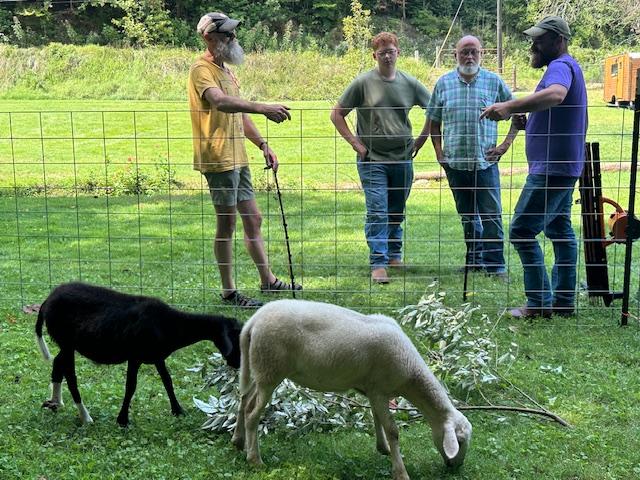Attendees at the Stidham Old Time Music Festival were treated to more than just melodies; they received a hands-on lesson in the future of sustainable agriculture in Eastern Kentucky. A workshop led by Kentucky State University Cooperative Extension Coordinator Richard Shmikler demonstrated how rotational grazing with sheep can be a powerful tool for managing invasive species and regenerating soil on reclaimed mine sites.
The event, which featured several "ambassador lambs," showcased the practical benefits of using livestock to heal the land. The sheep are part of a collaborative research effort between Kentucky State's Cooperative Extension Program and the South Eastern Kentucky Sheep Producers Association (SEKPSA). The partnership aims to utilize sheep to restore degraded landscapes in a way that benefits all parties involved.
"This is what Cooperative Extension is all about: bringing research-based solutions directly to the community," said Shmikler. "By partnering with dedicated groups like SEKSPA, we can show firsthand that sustainable farming practices are not only good for the environment but are also economically viable for Kentuckians. The sheep benefit from the forage, the land is revitalized, and our communities benefit from new farming opportunities and greater local food security."
Throughout the workshop, festival-goers learned about various types of mobile fencing, best practices for sheep care, and techniques for pasture maintenance. The session provided a unique opportunity for the public to interact with the animals and understand the vital role they can play in regional ecological and economic renewal.
This initiative is a key example of how Kentucky State University's Cooperative Extension programs are working with local producers to develop and promote farming techniques that are both innovative and deeply rooted in the needs of the community.
